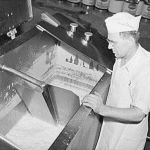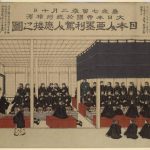Alexis Speer
Nimitz High School
Senior Division
Individual Website
Martin Luther King Jr., Malcolm X, John Lewis–these are all familiar names in the history of America’s Civil Rights Movement. But what about Joan Trumpauer Mulholland? A white woman raised in the Deep South, Mulholland became active in non-violent campaigns against racial segregation. In addition to participating in numerous sit-ins, Mulholland also rode with the iconic Freedom Riders registering African-Americans to vote across the South, for which she was incarcerated in Mississippi’s notorious Parchman Penitentiary at the age of 19.
Alexis Speer’s website, “Equal in the Eyes of God: Civil Rights Activist Joan Trumpauer Mulholland” tells the remarkable story of this remarkable woman. Her site explores Mulholland’s important contributions to the Civil Rights Movement and even includes an interview with the activist herself:
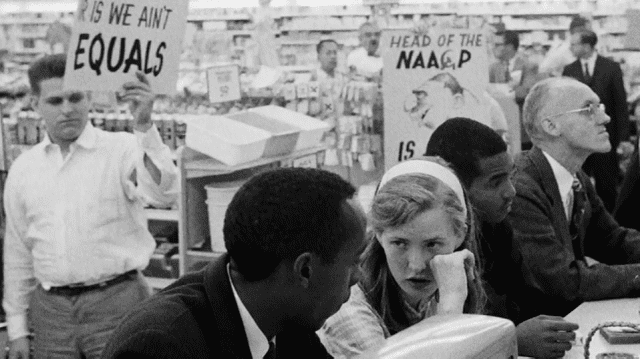
Q: What inspired you or motivated you to become active in the Civil Rights Movement?
A: I think my church did. We had to memorize Bible verses of how to treat each other, like “Do unto others as you would have them do unto you” and “Love thy neighbor as thy self.” When I got to high school, we had to memorize the Declaration of Independence, which says “We hold these truths to be self-evident, that all men are created equal.” The problem was that we didn’t practice what we were being taught. We had to do it. This is like saying “practice what you preach.” I felt that was the honest thing to do.
Q: Why did you feel it was your responsibility to help gain equal rights for all Americans?
A: I could see that we weren’t doing what we said we believed we should do. I felt I should of done my part to make it better for everyone, to be honest.
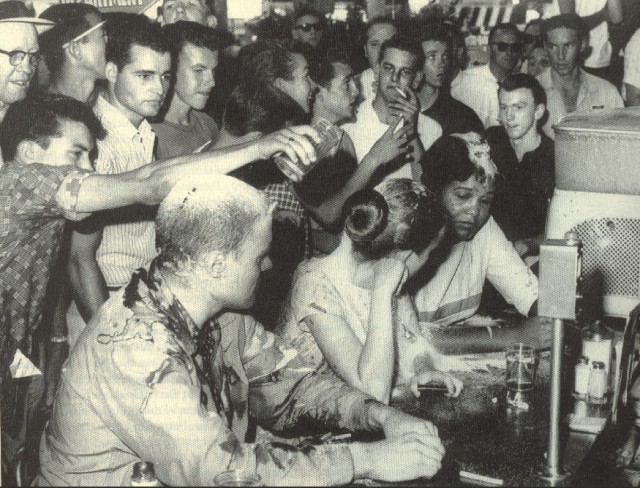
Q: How was your involvement in several nonviolent protests perceived by the public? What was the main argument against your involvement?
A: Well, for one we were breaking the law. Some people felt that according to religion God didn’t mean for us to mix, like cats and dogs don’t mix. People felt that the races should be kept separate, like how animals are kept separate. Also, people of the South, and other parts of the country, had grown up with society, the religions, and the law stating the races to be kept separate… With all that said, we were in fact breaking the law. People just felt that we weren’t meant to be that way, with people mixed together.
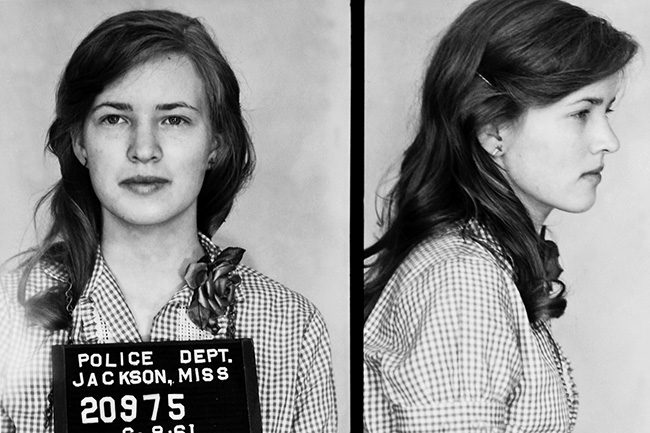
Q: What was your experience like during your imprisonment at Parchman? Why were the Freedom Riders being transferred to Parchman?
A: Well, I think the idea was to intimidate us because Parchman was absolutely notorious. It was an awful, awful place. So, they were trying to frighten us so that no more Freedom Riders were trying to come. Another thing was that they had begun to run out of room in Jackson, the jail was starting to overflow. In the white women’s cell, there were 17 of us and we had less than 3 square feet of room space each, if you count under the bunk. It was pretty crowded… At Parchman the conditions were actually better, we had more room, better food, and it was a lot cleaner. But, you were really cut off from other people besides the lawyer that would come up once a week… So, you were completely isolated and at the mercy of the jailor. People have been tortured and killed before. The rabbi of Jackson came up every week… and prayed with us. He would tell us what was going on in the world and let our parent’s know that he had seen us and that we were okay.
More great work from Texas students:
The life of Douglas MacArthur, right down to his corn cob pipe
A project that captures the Orwellian reign of Joseph Stalin
And a website on the global influence of one man’s non-violent philosophy


